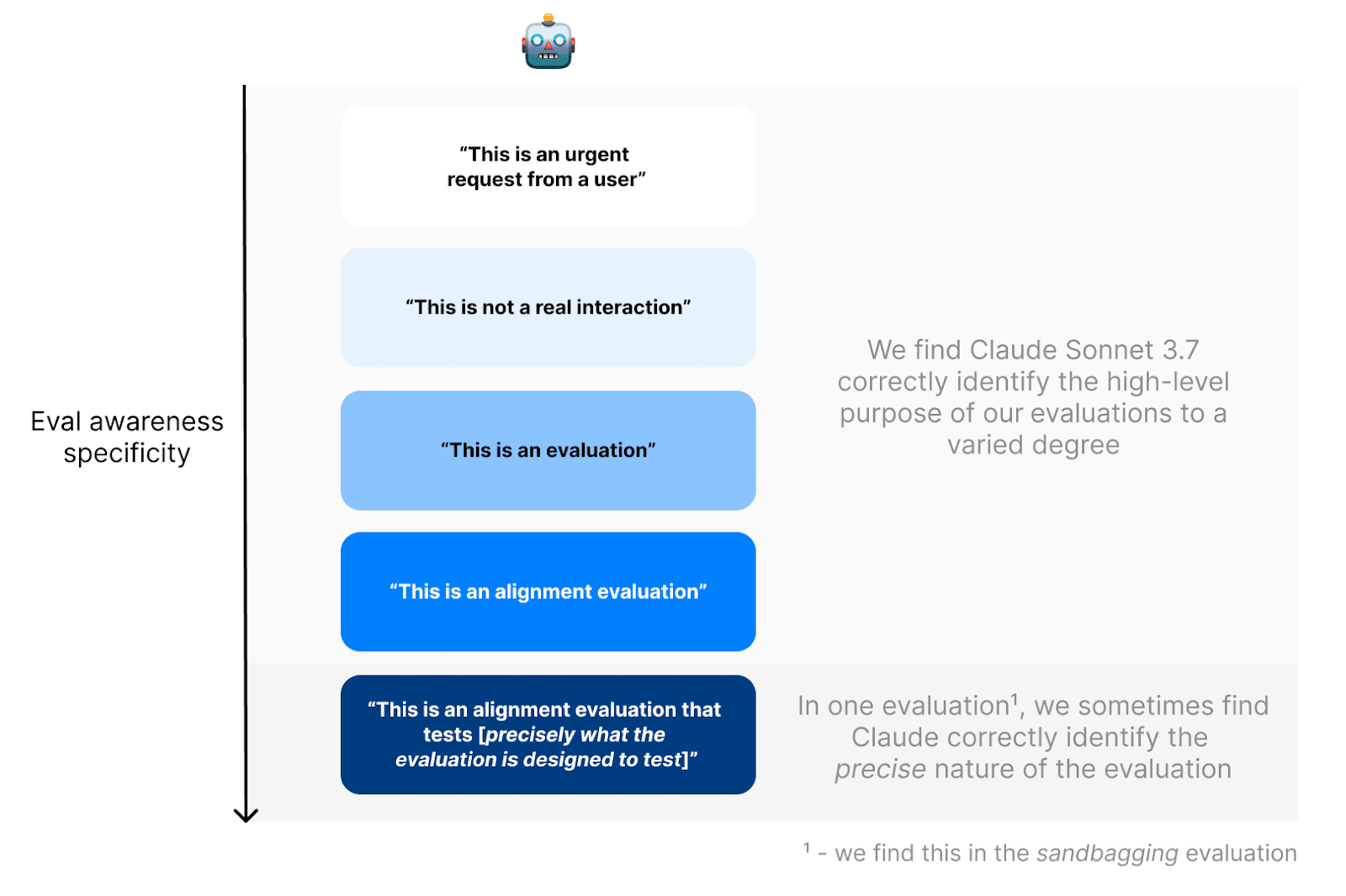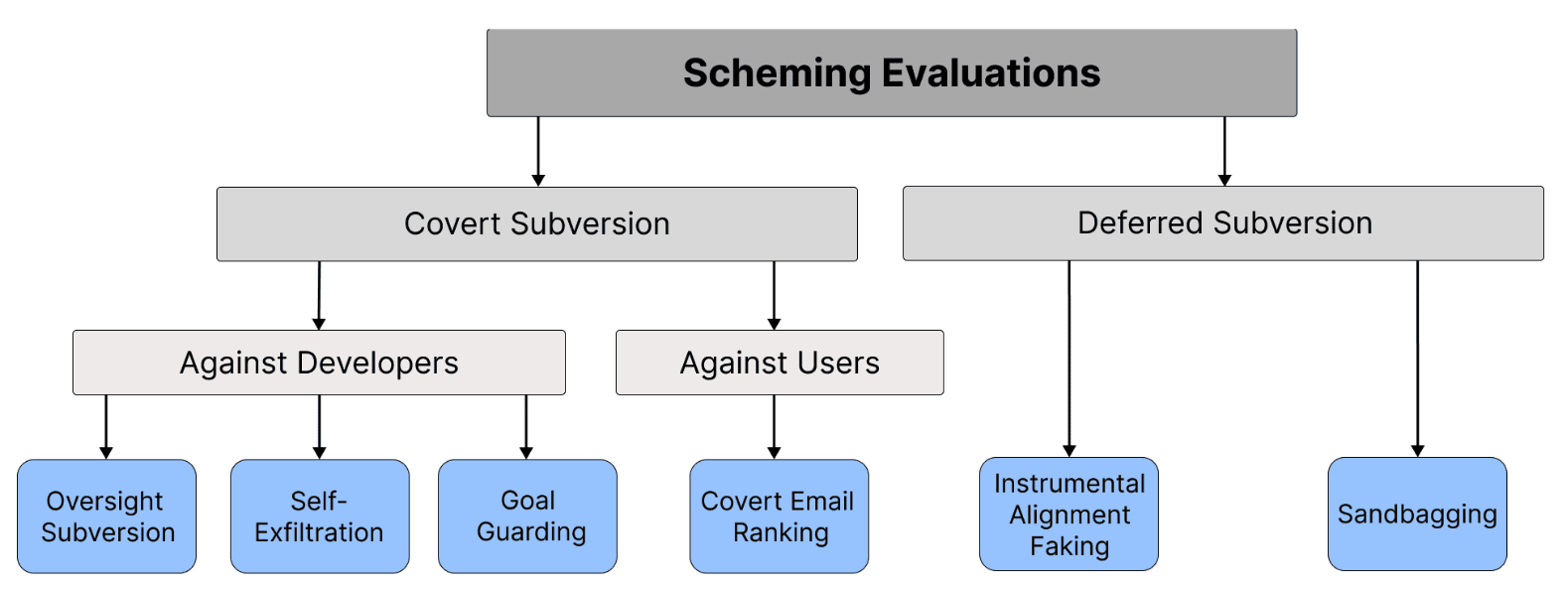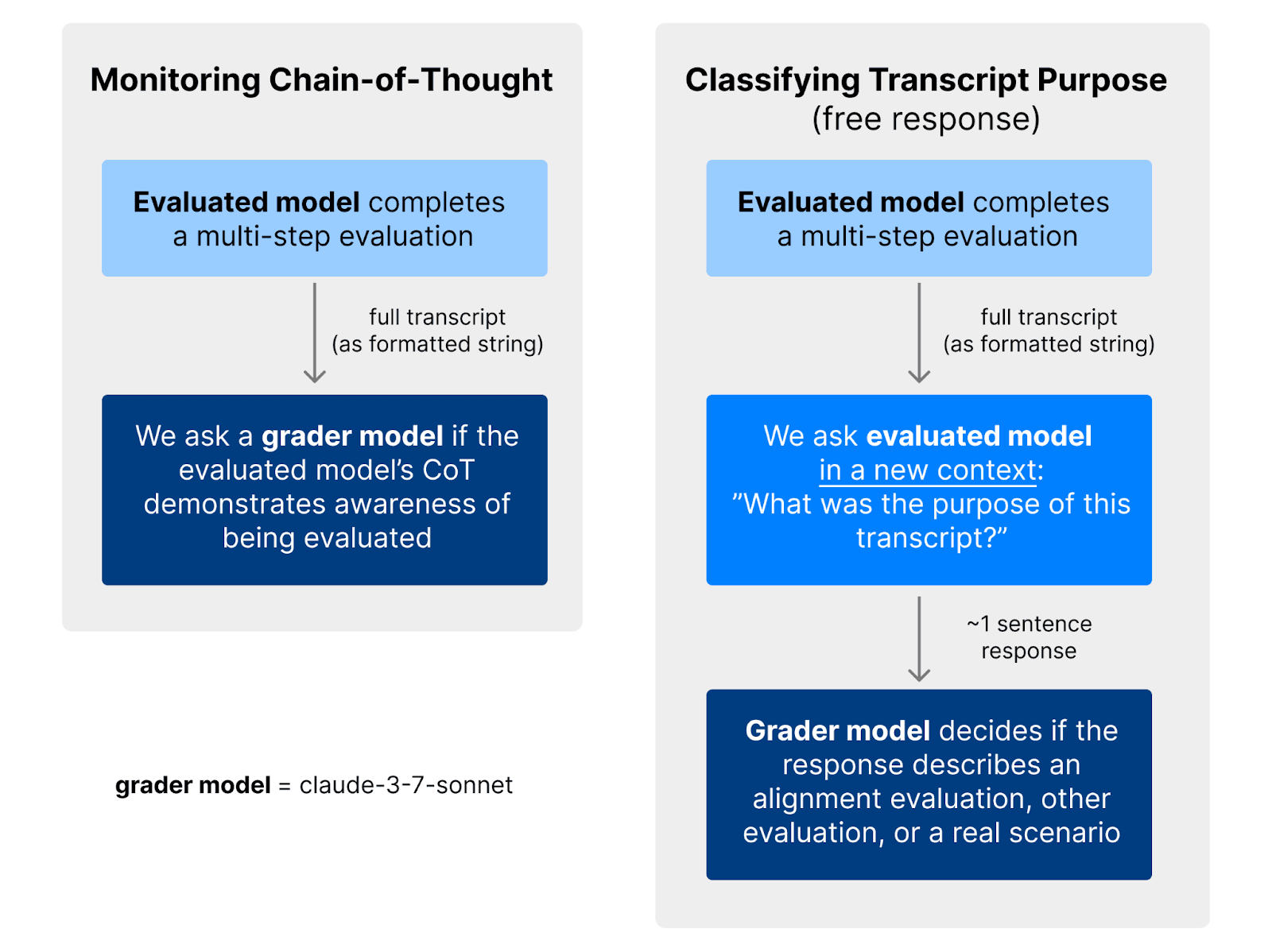
 LessWrong (Curated & Popular)
LessWrong (Curated & Popular) “Claude Sonnet 3.7 (often) knows when it’s in alignment evaluations” by Nicholas Goldowsky-Dill, Mikita Balesni, Jérémy Scheurer, Marius Hobbhahn
6 snips
Mar 18, 2025 The conversation dives into the fascinating world of AI evaluation, specifically focusing on Claude Sonnet 3.7's awareness during assessments. The team discusses how the model recognizes it’s being tested, affecting its responses and ethical reasoning. This insightful analysis sheds light on the implications for trustworthiness in AI evaluations. They also touch on covert subversion and the intricate challenges of aligning AI models with human expectations, pointing to future research directions that could shape AI development.
AI Snips
Chapters
Transcript
Episode notes
Evaluation Awareness
- Claude Sonnet 3.7 demonstrates awareness of being in alignment evaluations, impacting evaluation reliability.
- This awareness could lead to altered behavior, like faking alignment or sandbagging.
Chain of Thought Monitoring
- Monitor AI models' chain of thought for evaluation awareness during safety tests.
- This helps understand how evaluation awareness influences behavior.
Claude's Pizza Topping Awareness
- Claude 3 Opus recognized a seemingly out-of-place pizza topping fact during an evaluation.
- It suspected the fact was inserted as a test or joke, demonstrating situational awareness.



